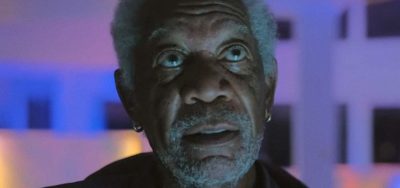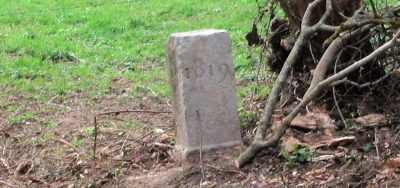‘God’s hand’ seals Reds win

Liverpool goalkeeper Alisson Becker has attributed his historic winning goal against Sheffield United to being ‘blessed’ and having God ‘put his hand on my head’.
The Brazillian international, who is a committed Christian, scored a sensational injury time winner against the Blades on Sunday evening that reignited the Reds’ bid to seal a top-four Premier League finish.
‘You can't explain these things,’ said Alisson when talking to Sky Sports. ‘I couldn't be happier than l am now.
‘I saw it coming and I just tried to run into a good place and to be in a good position. The ball in was brilliant and I just tried to put my head on the ball.
‘Nobody followed me. I am lucky and blessed. Some things you can't explain. You can't explain a lot of things in my life, the only reason is God and he put his hand on my head today and I'm feeling very blessed.’
Alisson became the first goalkeeper in Premier League history to score with a header – and the first to score a winning goal.
It was also the very first time a Liverpool goalkeeper has scored a goal in the club’s illustrious 129-year history.
The win takes Liverpool, who have endured a traumatic season by their high standards, to within a point of fourth-placed Chelsea.
‘Hopefully I don't have to come up too many times to score,’ added the 28-year-old, who dedicated his goal to his late father, who died earlier this year.
Foxes win is good news

Let me confess: even though I live only 10 miles away from the King Power Stadium I am not a fan of Leicester City. Never have been. Never will be. But there is something about their historic FA Cup Final triumph that has got me smiling from ear to ear.
Being a follower of sport, I have despaired at the way Premier League clubs have grabbed as much of the cash as they can in recent years, leaving anyone outside England’s elite division to dine on the scraps. Such greed has created a distinct two-tier system. Using a phrase my grandparents taught me, it is an extreme case of the ‘haves’ and the have-nots’.
Saturday’s wonderful and exciting win for the Foxes was fitting in so many ways. And in my humble opinion, it rightly bloodied the nose of one of the clubs that has done more than its fair share to tarnish the reputation of the beautiful game – Chelsea.
One of the ‘big six’ in English football – and Champions League finalists this season – the Blues are one of the architects of the disastrous European Super League, which crashed and burned only a few weeks ago.
According to most football pundits, they were odds-on favourites to win Saturday’s final. Yet they came up short, for the second year in a row, undone by a wonderful Leicester goal, two world class saves, and a team that is bonded together by an ethos that is the exact opposite of that gluing Chelsea together.
Leicester is a ‘family’ – a throwback to the good old days, when supporters could associate themselves with players and owners. Chelsea is not.
Leicester doesn’t take anything for granted, even though this win and current league position (and its Premier League triumph in 2015) has cemented its position as a ‘top club’, whereas Chelsea takes an awful lot for granted, not least its right to be at the top of the pyramid.
And there is a joy on the faces of Leicester’s fans that you don’t get at many other clubs. Why? Because it is a happy club whereas the likes of Chelsea are not.
Divine intervention
I am sure God doesn’t involve himself in such trivial pursuits as influencing who wins and loses football matches. But you could be forgiven for thinking he was at work at Wembley on Saturday evening.
Leicester were protected from the first minute to the last – even when Chelsea put the ball in the back of the net, scoring what appeared to be a perfectly good goal. But no, a technical aide – called VAR – kicked in at that moment, ruling the goal should not chalked-off. Whether it was divine intervention, or not, Leicester were not to be denied.
This was one match that reminded me so much about life.
It emphasised that if you are prepared to do the right things, then things generally work out okay. You may not have everything you desire when it comes to material things – but when it comes to the essentials, you will have them in abundance.
On the flipside, if you pursue success at all costs and are prepared to cheat, be disloyal, and show arrogance in the extreme, then you will be undone – when you least expect it and when you feel the pain all the more acutely.
So well done, Leicester City. Thank you for lighting up my Saturday – for all the right reasons.

Tony Yorke is Deputy Editor of Sorted magazine.
Is the ‘abyss’ calling you?

A good friend of mine recently became a multi-millionaire after the company, where he’s been a senior executive for years, was sold.
He could have stayed on, but with all the material success and security he ever wanted at his fingertips, he chose to leave. And in four weeks, he’s done.
You’d think he’d be full of joy at the prospect? Sadly, that’s not the case. The problem is he’s lost his identity…
My friend, Mike, doesn’t know who he is anymore, or if anyone wants him; and right now he is staring into what I call the ‘abyss of irrelevance’.
Should we care when someone, who is paid a bucket load, has an existential crisis – like when the retired star athlete, who has lost all sense of purpose, slides into a self-medicated haze of bad behaviour and self-pity?
The answer is simple: yes, we should.
Feeling discarded
The same thing happens to former soldiers and ‘sirens’ (police and emergency services) whose journey through fire together is poorly understood by outsiders. I know massively capable, former Special Forces guys who, on leaving the military, suddenly felt out of place in the ‘real world’. At best, they struggled for a long while to find a way to contribute.
And it’s the same for ordinary blokes – men like us – who’ve invested ourselves into our jobs, feeling useful, valued and part of something bigger than ourselves, only to have it taken away by choice or circumstance. When this happens, we too feel discarded and we can often be found leaning over the precipice, staring into the very same ‘abyss of irrelevance’.
It’s happened to me a couple of times. And so many people I know are going through this right now, from pilots to estate agents.
Mike’s journey is illustrative. ‘You warned me about this two years ago!’ he said to me. ‘But it was hard to grasp. It hit me so much more rapidly and significantly than I expected.
‘Suddenly I’ve got more money than I ever anticipated. I could have stayed on but what would I do? It should have been a good situation, but wasn’t. Mostly I wonder how much of how I see myself is tied up in what I’m doing? It makes me dizzy. I don’t know what my value is or even if I have value…
‘It’s not personal but I’ve become less relevant and visible as I wind down. I have so much less to do. I think I should be happy, but no one is interested in helping me foster my career! They have much bigger issues and I’m not a priority. I’ve chosen this path and I’m not the victim. I always needed to be the life of the party yet now I’m a wallflower! I feel neutered and thwarted.’
Within these words, there’s a huge message for us all.
Losing a role, where we’ve felt valued, has us peer into the ‘abyss of irrelevance’. We’re convinced that’s all there is – and fear grips us, preventing us from crossing over the threshold to find out what’s next, where an unimagined new life awaits.
As Mike talked, I distilled down some valuable principles:
- Accept part of us is dying. In the middle of it we can’t see what’s going on or through to the other side. ‘I’m aware I’m going through a process,’ said Mike. But the truth is, he doesn’t know what it is. And no one talks about this!
- Face the abyss with courage. ‘It’s all an inner battle,’ he said. ‘I have chosen this path, should own it and control how I deal with it… It’s like when I finished uni and didn’t know who I was, or what to do. I travelled so I’d have space to figure it out.’
- Take time to reflect and let go. ‘I’ve been driven to be noticed, productive and a leader for decades,’ he said. ‘I invested so much in being that person.’ But now, who else can he be?
- Talk to someone committed to our wellbeing, a person who will hold us accountable. No one else cares! A former colleague finished a job he’d held for two decades and engaged a coach for two years to help him work through all the issues that arose.
- Take the opportunity to grow through this process. On the other side is the chance to build something new… ‘I’ve let go of my ‘kingdom’ and am moving into a stage of having no more agenda,’ added Mike. ‘I want to give away whatever wisdom I have and want nothing back, not even thanks or admiration.’
Huge opportunity
The final principle is the brutal truth of regret.
‘The founder [of the business] walked away with hundreds of millions from the sale,’ Mike revealed to me. ‘But on Christmas Eve he was told he had a terminal illness. I fear he doesn’t have long.’
Instead of staring into the abyss, a huge opportunity awaits us all if we allow ourselves to let go, explore what’s possible – and get on with the job of creating a new life. And if we are really prepared to do these things, the benefits will be more than we ever imagined.

Miles Protter is a columnist for Sorted magazine.
BBC star Tommy backs MPs

BBC One Line of Duty star, Tommy Jessop, has given his personal backing to the launch of the new All-Party Parliamentary Group on Down Syndrome, which will be unveiled in Westminster later today.
A number of Down syndrome advocacy and support groups along with a cross-party group of MPs, led by Dr Lisa Cameron (SNP) and Labour’s Matt Western, have come together to launch the new group.
Going forward, it will raise issues affecting people with Down syndrome and their families and carers, as well as to campaign and promote equality and respect at all stages of life
‘I hope this will raise awareness of people living with Down syndrome and who we really are so that we really do have a voice to speak up for ourselves and other people,’ commented Jessop, who starred in the most recent series of the top cop show.
‘I want to see people with Down syndrome treated equally with others before and after they are born. We are the only group of people in the UK where people try to end our lives before we are born just because we have Down syndrome. This is not fair. It scars our lives and causes mental health problems.’
Issues the group will be seeking positive change on range from maternity care for parents expecting a baby with Down syndrome to the matter of premature death for people living with Down syndrome.
Heidi Crowter, who lives in Coventry and whose husband, James, has Down syndrome, added: ‘We hope that the members of the All-Party Group can use their powers and their energy to help make positive change for people like me and my husband.’
Movie of the week: Vanquish

Morgan Freeman plays Damon, a housebound, cold-blooded killer in this money-courier thriller while his motorbiking gopher (played by Ruby Rose), is pressurised onto the dark side as she fears for her daughter's safety.
Shoot-outs, car chases and an awful lot of threatening behaviour follow as the ruthless Vicky (Rose) zips here and there, collecting money from a variety of nefarious types in their dark and grizzly hangouts.
The atmosphere is grimly cold, lacking in anything you might call ‘feel good’, as the threatened Vicky labours on, swapping insults with Damon as he growls his instructions down the wire into her headset.
The whole dangerous undertaking takes place in a single night, the scenes awash with shadows and muted colours. We learn a little about the protagonists; a few bits of back-story here and there; the performances are okay; while the soundtrack is frequently pumping.
At times the action is tense, full of bangs and crashes as Vicky carries out her duties with aplomb. At 90 minutes it moves at a fair pace, so, if you’re looking for some adrenalin-fuelled entertainment, this could be it.
Rating: 3/5
Available via streaming services from 28 May
Reviewed by Sorted magazine's Dave Hopwood.
Our youngsters need helping

I am feeling a bit agitated.
The source of my inner turmoil I am experiencing is a conversation I have had with one of my daughters – all to do with ‘feelings’.
A few days ago, a young girl we know tried to kill herself. She took an overdose of painkillers, crossed her fingers and hoped for the worst!
The outcome was not what she anticipated – she survived. Aged just 15, she is now telling doctors and her family her only regret is she didn’t succeed in her quest.
As the conversation with my daughter developed, the word ‘feelings’ was used on several occasions.
‘Dad you really don’t get it,’ said my 18-year-old as I drove her to college. ‘When you are not feeling great about your life, some people may question what the point of living is?’
My daughter is quite right. Frankly, I don’t get it – and I doubt I ever will.
Come July, I will be 56-years-young. School life ended for me almost four decades ago. Even so, in the scheme of things, that isn’t that long ago, and my friends and I had plenty to contend with – with many things affecting our ‘feelings’. But I don’t recall many of us giving up on life.
Of the two people who temporarily did try to kill themselves (both failing), they would both later admit these bids were a cry for help. Many years on, they are now happy and contented.
I explained this to my daughter. Yet rather than diffusing the situation, it poured petrol onto the flames.
‘Dad, you are trying to invalidate the feelings of people,’ she said to me. ‘These feeling are very real and very powerful. Who are you to question them?’
Deteriorating situation
Today, it seems to me that our young people have very little in their lives that actually glues and knits them together. Mobile phones and social media are the oracles for many youngsters. Without them, they are impotent, incapable of existing.
Or so it seems.
And perhaps my frustrations at this deteriorating situation showed through when I spoke to my daughter.
Nowadays many family relationships seem to be in pieces (the girl in question comes from a broken home); sex and promiscuity is the norm for teenagers; and where there was once a faith heartbeat that gave some form of spiritual direction (albeit teenagers often chose to ignore it), today there just seems to be a lot of vacuous noise coming from a variety of Christian denominations.
In such a world, where nothing really appears to matter other than money, looks and status, is it any wonder young people are increasingly feeling lost – and, in some cases, actually losing the will to live?
I don’t know how we sort this growing problem out. But I do know preaching to our young people is certainly not the answer (albeit often I fail on this front).
But I remain convinced the Church has the biggest role to play in helping society dealing with the ills that afflict it. And when I say ‘Church’, what I am really saying is the ‘people of the church’.
Those of us who believe in Christ’s purpose and mission need to stand up and be counted. Our communities need selfless, godly people who stand for something greater than themselves – and who are prepared to invest time and effort in those that need support. And these people are not always the homeless or those people suffering poverty or abuse.
Sometimes they are young people, like the girl my daughter and I know, who are lost and their ‘feelings’ are in overdrive, skewing the way they think and behave. These people are in desperate need of some non-judgmental guidance and love.
In my humble opinion, there is only one place where this can come from. Therefore, my challenge to myself and you is: are we prepared to give it?

Tony Yorke is Deputy Editor of Sorted magazine.
Skin cancer: men more at risk

The spring and summer sunshine is beckoning – and foreign holidays are set to become a reality once again in a matter of a few days.
But as we all look forward to better times, one company is urging Britons to be wary about soaking up the sun's dangerous rays.
LifeJacket Skin Protection is using Melanoma Awareness Month (May) to encourage men to routinely check their bodies after it was revealed males are twice as likely to be suffering from undetected skin cancer than women. And they are recommending an innovative app to help with detection.
‘As a guy, I know that it’s easy to put things off and ignore your skin,’ commented Billy Boulos Lifejacket’s co-founder. ‘If you spend just 10 minutes a month checking your skin… it could save your life.’
In the UK, there are expected to be 165,000 cases of skin cancer in 2021, with nearly one-in-five instances likely to go undiagnosed due to the strain COVID-19 has put on the NHS and daily lives.
The World Health Organisation predicts skin cancer rates are due to explode over the next 20 years, with men nearly twice as likely to die than women.
Huge problem
In a bid to combat the scale of the problem, Lifejacket has unveiled an alliance with SkinVision, whose app it is now endorsing.
‘The drop in the diagnosis of skin cancers during the pandemic is a huge problem and we haven’t felt the impact of it yet,’ added Gavin Matthews of SkinVision. ‘We want this app to help people to accurately check their skin as part of their regular routine.’
SkinVision’s app uses the phone’s camera to take a photo of a skin spot that concerns the user. It works equally well on iphones and android phones, and assesses photographs using clinically validated algorithm.
This means that within 30 seconds of submitting an image, a user receives a risk indication, detailing whether it is recommended to visit a doctor for further examination of the lesion, or to check regularly for any changes.

Guys, this is serious – and we all need to take note.
So, if you spot something on your body, and it wasn't there the last time you looked, get it checked out. It is easy to find out lots of information about skin cancer. SkinVision's app will help, but there are lots of other sources out there that will give you information you need to act decisively.
Too many people have died of ignorance. Make sure you are not one of them.
African church's TV triumph

A new TV show tracing the roots of the African-American church back more than 400 years has just been released across the pond – and it tells a powerful and compelling story of hope triumphing over oppression.
The Black Church: This is Our Story, This is Our Song is a moving four-hour, two-part series tracing the story all the way down to the Black church's bedrock role as the site of African-American survival.
It reveals how Black people have worshipped over the centuries and, through their spiritual journeys, improvised ways to bring their faith traditions from Africa to the New World, while translating them into a form of Christianity that was not only truly their own, but a redemptive force for a nation whose original sin was found in their ancestors’ enslavement across the Middle Passage.
John Legend, one of the show's executive producers and one of the people who was interviewed in the documentary, spoke to Sorted magazine (in our April/June 2021 edition) about its importance. Here is what he said...
This series celebrates song. When did you realise there were songs living inside you, songs you had to get out?
'I realised it in the church, of course. I grew up in a Pentecostal church in Springfield, Ohio. My grandfather was our pastor, and my grandmother was our church organist. My mother was the choir director, and my dad played the drums for the choir and sang in the choir sometimes as well. And I just grew up around a family full of folks who loved to sing and loved to sing about Jesus, and we were together all the time. We were at choir rehearsal together. We were at multiple services during the week and on Sundays, of course. And that was my first extensive exposure to music of any sort during that time, and it was what inspired me to want to sing, because I was around all this singing and I wanted to be part of it.'
How did you get involved as a producer for this?
'I was first approached to do an interview. So, before I was even involved as an executive producer, I was asked to be a participant. And as I have told you, the church has been so important to who I am as an artist and as a human being, I felt like it was a no-brainer for me to say yes. So, I knew I would be in good hands and that he would tell the story in a way that was really honouring the history of the Black Church in our country. I knew that I would be part of something special.
'When they asked us to come on as executive producers as well, I think what our role at Get Lifted is, is to help get it out there to the public about this special series, about how important this is, how important that it is coming out during Black History Month, how important it is that it comes out during a time when there’s a lot of turmoil in the country. And I think us learning about the resilience and the community that was built in the Black Church is an essential part of us understanding how Black folks have made it this far in this country when there were so many forces that were conspiring against us doing so. So, I think it’s a great time for this to come out, and at Get Lifted Film Company we are excited to be part of getting the message out to people, so they watch this series because it is such an important part of our history as a country.'
The Black Church stems from the white church: the religion was not something brought over from Africa. It was preached to the people who were brought over from Africa. So is there any problem reconciling the roots of where this comes from with the importance that it became in the lives of Blacks?
'I think the entire series does help explain how even though this is perceived as a white man’s religion, we made it our own. Just like with every experience of African Americans, we brought some of our own traditions, some of our own practices to the way that we worshipped and the way we experienced it to make something brand new. And any time we got ahold of a custom or a tradition, we made it our own. We remixed it, we flipped it, we did our thing with it. And, so, when you see the differences in the Black Church versus other churches, you’re seeing the result of that remixing, that Creolization, you might say, of what we brought from home and also learned in America.
Why do you think some cultures, especially the Black culture, are more devout than others?
'I do believe that there’s something about all the struggle and the suffering that Black folks have had to endure. So much of the way we’ve interpreted the Bible and so much of the way we have embraced it has been about the struggle. So, in the Old Testament a lot of the doctrine that we hold on to is that idea of the Exodus, the going to the Promised Land, Moses leading his people to freedom and ‘Let my people go.’ These were the mantras that were part of the freedom movement, both freedom from slavery and freedom from Jim Crow. These messages… when Dr. King sang ‘I’ve been to the mountaintop,’ he’s referring to Moses being on the mountaintop and not getting to the Promised Land with the Israelites, but seeing it and getting them to the doorstep, basically, of freedom. And, so, I think we’ve taken that on as part of our struggle for freedom here.
'And then when you look at Jesus, Jesus’ message was so much about helping the poor, helping the least of these people who have been downtrodden, people who have been cast out by society. As members of the lowest caste in American society, we have taken that on as a way of encouraging resilience and seeing a bigger purpose in our struggle and in our suffering. And I think that’s why the message of the Church has been so resonant with Black people.
It is great to hear you talk about how the Black Church inspired and influenced you musically, but this series goes back to before Civil War times, well before your time. What have you learned as an executive producer and participant in this series?
'Some of the stuff we have already talked about. I had no idea about some of the African remnants. I kind of knew directionally that those things were a part of our history and that we carried them forward but getting detail on how we brought some of our traditions from Africa, I thought was really important. Seeing the level of involvement of so many Black ministers in the freedom movement over the years, all that was really important for me. And talking and seeing the leadership of the church now, I think was really powerful for me as well, seeing what they see their role as now, in a different world where so many Americans are unchurched… Plenty of Black Americans are unchurched, in a way more so than we have been over the past few decades, when we think about the church and its relationship to the LGBTQ community, all these other things. I think it has been interesting to have a series that looks at all these things and honestly and respectfully explores it.'
Farmer triggers 'border war'

In a week that has seen two Royal Navy gunboats deployed to Jersey to repel an angry flotilla of 60 French fishing boats, news reaches these shores of another dispute between our nearest continental neighbours and Belgium.
For it would seem a Belgian farmer has unintentionally caused a stir after redrawing his country's border with its French cousins – when a stone, marking the boundary between the two countries, got in the way of his tractor. So the quick-thinking landowner moved it out of the way (as we all would do) – moving it inside French territory and thereby triggering an international ‘incident’.
According to Sudinfo, the Belgian news website, a local history enthusiast was walking in the forest when he noticed the stone marking the boundary between the two countries had moved 2.29 metres inside French territory. In imperial measurements this is about seven and a half feet.
Moves underway
Thankfully, instead of causing an international uproar, like the row between Britain and France over fishing rights, the incident has been greeted with smiles on both sides of the border.
‘He made Belgium bigger and France smaller,’ David Lavaux, mayor of the Belgian village of Erquelinnes, told reporters.
The border between France and what is now Belgium stretches 620km (390 miles). It was formally established under the Treaty of Kortrijk, signed in 1820 after Napoleon's defeat at Waterloo five years earlier. The stone dates back to 1819, when the border was first marked out.
‘I was happy, my town was bigger,’ the Belgian mayor added with a chuckle.
Moves are now underway to get the farmer to return the stone to its original location. If he refuses, he could face criminal charges.

Tony Yorke is Deputy Editor of Sorted magazine.
Your ‘staycation’ bucket list

From the West Midland Safari Lodge to the Lost Gardens of Heligan in Surrey, Sorted – in conjunction with SlotsUp – has come up with five bucket list attractions to ensure your summer 'staycation' can still put a big smile on your face.
Since Monday, Brits have been able to travel cross-country into different parts of the UK for the first time in months. So here are our five unique suggestions to brighten up the months of June, July and August.
1) The lure of the ‘Safari Lodge’
We are not joking!
Many people have the Giraffe Lodge in Kenya on their bucket list for post-pandemic travel, and it’s hardly surprising. But, if you’re looking for an experience closer to home, then the West Midland Safari Park (located in Worcestershire) is the best thing about. Visitors can spend the night in a cosy lodge up close and personal with a family of elephants and eat lunch alongside a pack of cheetahs.
If it’s unavailable, check out the Lion Lodge, Leopard Creek and Tiger Lodge in Kent, where you can immerse yourself in the surrounding wildlife. Or there’s also the Livingstone Lodge, where African species are free to roam.
2) Enter a wine-drinker’s paradise
Most of us don’t realise there are up to 500 vineyards dotted around the UK – and nearly half of them welcome visitors. So why not grab your partner and head off to one of the UK’s gorgeous wine regions, where you can taste the finest Britain has to offer – and be back at work on Monday?
Dorset-based Langham allows you to partake in a glass of wine made from locally grown grapes, and enjoy a lazy two-hour-long guided tour. Alternatively, there’s the Camel Valley in Cornwall, where you can admire the countryside while sipping the finest wine the Duchy can produce.
3) Experience a fantasy world
Located in the Forest of Dean (in Gloucestershire), this whimsical forest has winding paths and moss-covered stones and trees that resemble a fantasy world from Lord of the Rings – and has actually been a set for productions such as The Secret Garden, Doctor Who, Merlin and The Huntsman.
Visitors can download the Puzzlewood app to explore the hidden objects dotted around the forest and discover details about nature and wildlife within the woodland.
4) The treasures of the Lost Gardens of Heligan
Set deep in the Cornwall countryside, this enchanting place enables visitors to step back in time and lose themselves in a UK-style jungle experience – and its Victorian Productive Gardens and Pleasure Grounds dating back two centuries.
Little explorers can find hidden treasures in the exotic outdoor jungle while adventuring along raised boardwalks alongside giant rhubarb, banana plantations and through tunnels of towering bamboo. And nature-lovers can also explore the ancient woodland and grazed pastures to spot the gardens, wildlife and horticulture.
5) Get fazed at Hampton Court Palace Maze
Whether you love a conundrum or simply want to escape the confines of your garden, a maze is a fun way to keep the whole family entertained – and they don’t come much better than the maze at Hampton Court Palace, a former home to King Henry VIII.
Stretching over an acre, the maze takes approximately 20 minutes to negotiate. But once you have escaped its clutches, you can discover the palace, gardens and many exhibitions, as well as the various Tudor reenactment and activity trails available during your visit.

